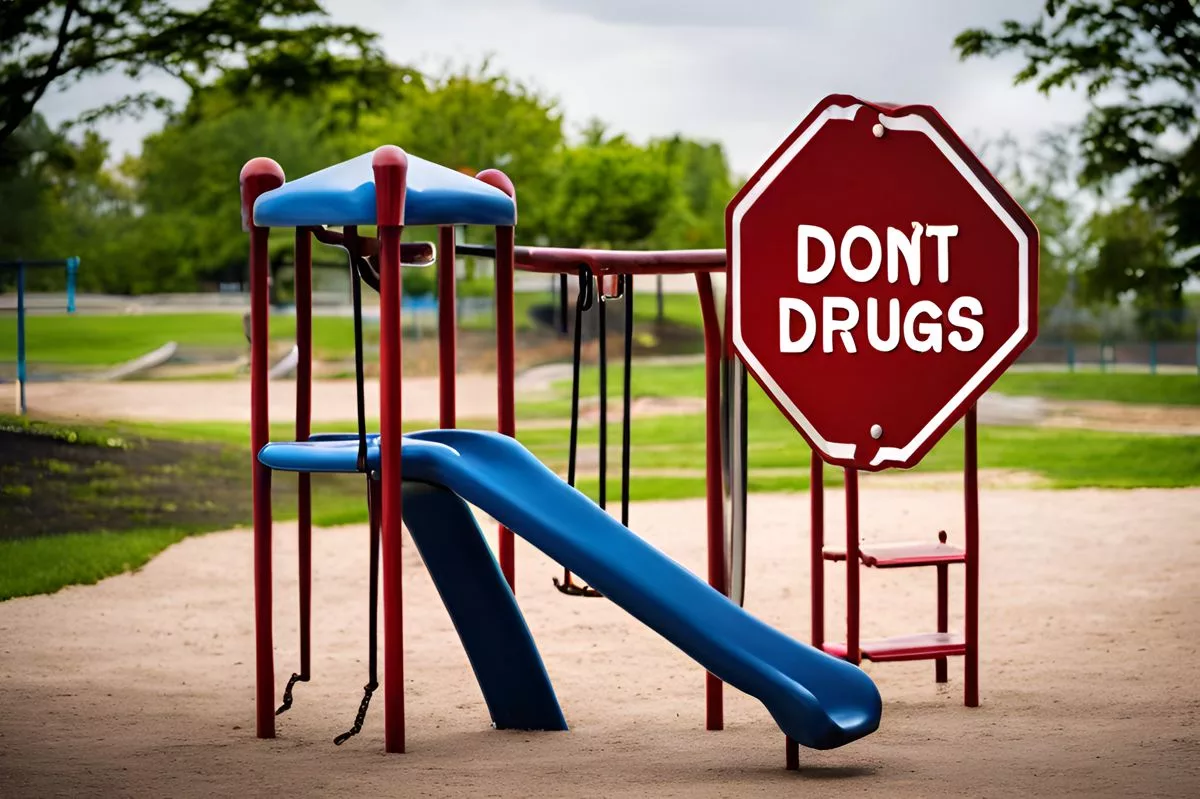Drug abuse among children is a rising epidemic in Cape Flats, South Africa. An eight-year-old boy was found to have ingested a lethal mix of hard drugs, highlighting the urgent need for immediate intervention. The drug problem has pervaded the community, with children able to buy cocaine for as low as 20 Rands, causing growing concern among community members. Community leaders are confronting this issue and hoping for swift action from authorities. The shocking story of the boy is a chilling reminder of the escalating drug abuse among children in Cape Flats.
The rising epidemic of drug abuse among children in Cape Flats, South Africa is a shocking reality. An eight-year-old boy was found to have ingested a lethal mix of hard drugs, including mandrax, tik, heroin, and cocaine. This incident highlights the urgent need for immediate intervention. The drug problem has pervaded the community, with children able to buy cocaine for as low as 20 Rands, causing growing concern among community members. Despite the severity of the situation, community leaders are confronting this issue and hoping for swift action from authorities.
In the seemingly peaceful suburbs of Cape Flats, South Africa, there lurks a startling and disturbing truth. Behind the calm exterior of family homes, a rising epidemic of drug abuse is taking hold, specifically among the region’s most vulnerable inhabitants – the children. A shocking recent example of this is the case of an eight-year-old boy from Elsies River who was found to have consumed a lethal mix of hard drugs, including mandrax, tik, heroin, and cocaine. This alarming incident serves as a stark illustration of the escalating crisis, highlighting the urgent need for immediate intervention.
Community Leaders Uncover the Scary Reality
Franchesca Walker, a community leader at the heart of this predicament, was the first to uncover the distressing plight of the boy. As the councillor of Leonsdale ward, Walker is an integral part of the community and is often the first person to be reached out to when there is distress. The case unfolded when the boy’s grandmother, in a state of desperation and anxiety, approached Walker, seeking help for her missing grandson.
Walker recalls, “I was carrying out my duties in my ward when the boy’s grandmother approached me with the news that her eight-year-old grandson was missing.” Despite an exhaustive search, the boy was nowhere to be found. The search took a different turn when later that day, community workers spotted him in another part of Leonsdale. After speaking to the boy, Walker immediately sensed that something was terribly wrong.
Revealing the Shocking Truth
The boy was swiftly taken to the Tehillah Centre, a local community facility for further examination. A drug test conducted there dropped the horrifying bombshell. The child had ingested an array of hard drugs – mandrax, tik, heroin, and cocaine. The local social services were alerted without delay.
This shocking case compelled the CEO of Tehillah Centre, Sister Magda Kleyn, along with her team to investigate further into the issue. What they uncovered was equally disturbing. They found that children in the community were able to procure cocaine for a meagre sum of 20 Rands – a cost that tragically mirrors the drug’s widespread accessibility.
Kleyn expresses her shock, “We were stunned beyond belief. Our further investigation revealed that local school teachers and parents are completely exhausted and exasperated dealing with rampant drug use among children in Leonsdale”. Cocaine, a drug traditionally linked with wealthier societies, has now pervaded the Cape Flats drug market, creating a growing sense of alarm within the community.
A Terrifying Trend and a Community’s Response
Adding to the severity of the situation is the shocking affordability of the drug. “We discovered that children could purchase cocaine for just 50 Rands, and they can even buy a single line to sniff for 20 Rands if they can’t afford 50,” Kleyn shares. Another community member, Isaacs, also expressed his apprehension about this new trend, voicing his concern about the substances being used to dilute the drug, making it cheaper.
The tragic story of this eight-year-old boy is more than an individual tragedy. It is a chilling reminder of the escalating drug abuse among children in Cape Flats. Despite the shock and anxiety, community members like Walker and Kleyn continue to confront this issue, hoping for a swift, decisive intervention from the authorities to stem this horrifying trend.
What is the rising epidemic of drug abuse among children in Cape Flats, South Africa?
Drug abuse among children is a rising epidemic in Cape Flats, South Africa. Children are able to buy cocaine for as low as 20 Rands, causing growing concern among community members.
What happened to the eight-year-old boy found in Cape Flats?
An eight-year-old boy was found to have ingested a lethal mix of hard drugs, including mandrax, tik, heroin, and cocaine. He was discovered missing by his grandmother and later found in another part of Leonsdale. After speaking to the boy, community workers immediately sensed that something was terribly wrong and he was taken to a local community facility for further examination.
Who uncovered the distressing plight of the boy?
Franchesca Walker, a community leader at the heart of this predicament, was the first to uncover the distressing plight of the boy. As the councillor of Leonsdale ward, Walker is an integral part of the community and is often the first person to be reached out to when there is distress.
What did the investigation uncover into the issue of drug abuse among children in Cape Flats?
The investigation found that children in the community were able to procure cocaine for a meagre sum of 20 Rands, and local school teachers and parents are completely exhausted and exasperated dealing with rampant drug use among children in Leonsdale. Cocaine, a drug traditionally linked with wealthier societies, has now pervaded the Cape Flats drug market.
How affordable is the drug in Cape Flats?
Children could purchase cocaine for just 50 Rands, and they can even buy a single line to sniff for 20 Rands if they can’t afford 50. This is a shocking trend that is causing growing concern among community members.
What is the response of the community to this issue?
Despite the shock and anxiety, community members continue to confront this issue, hoping for a swift, decisive intervention from the authorities to stem this horrifying trend. Community leaders and organizations like the Tehillah Centre are working to raise awareness and support to combat the rising epidemic of drug abuse among children in Cape Flats.












